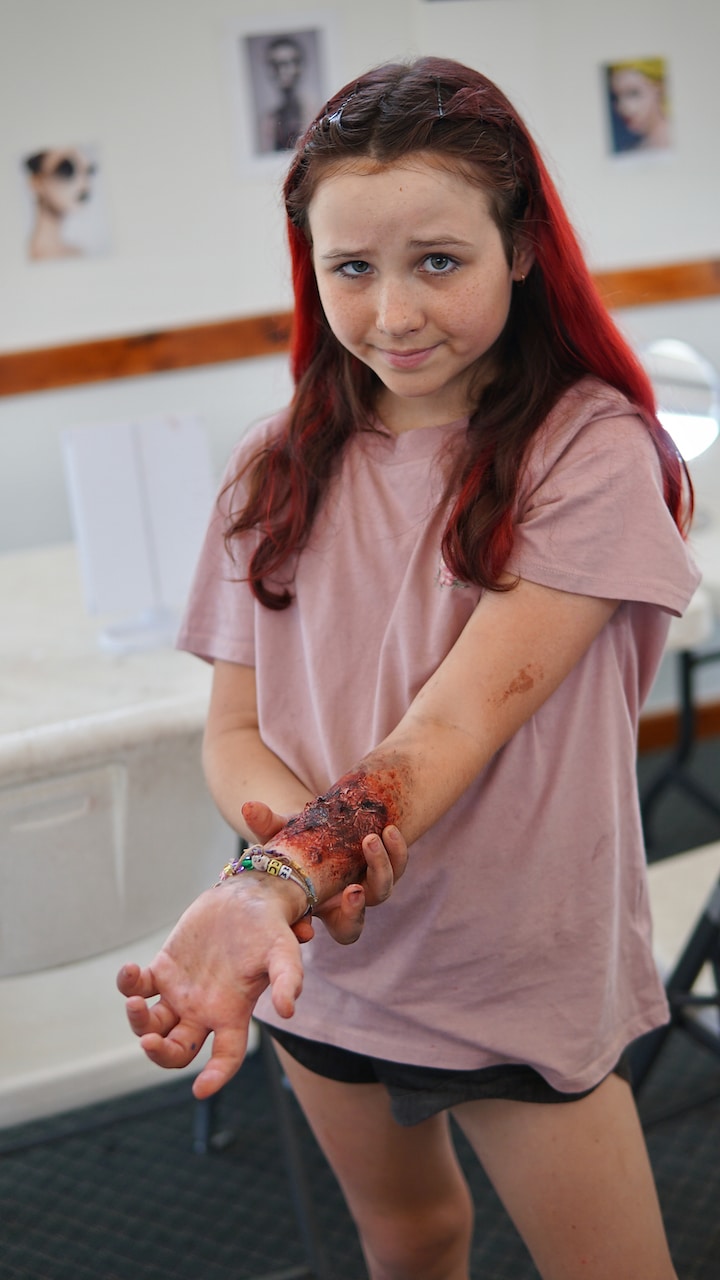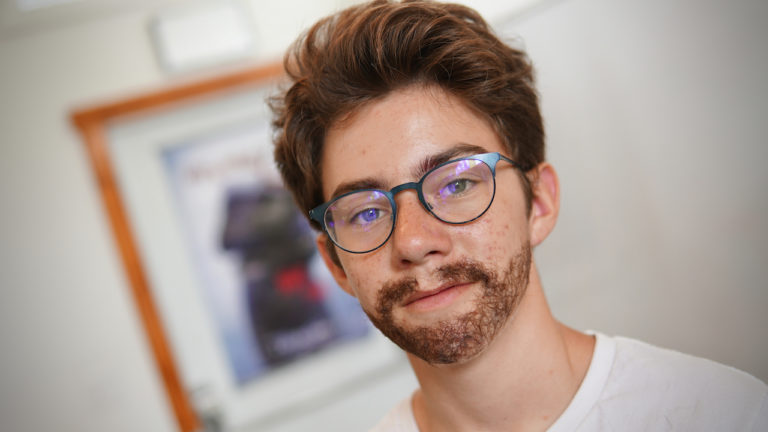Summer Camp Special Effect Makeup Tips

Special effects makeup is the silent hero of the film industry. Many of the most popular films and television shows wouldn’t be nearly as good if there wasn’t an army of makeup artists working behind-the-scenes to make sure the actors looked their best before stepping in front of the camera.
These makeup artists are sometimes the first people to arrive on set and the last to leave. The work they do sets the tone for how the actor will approach their role once the camera is rolling. They’re vital to any production. In order for the film industry to keep growing, there needs to be quality training available for new generations of inspiring makeup artists.
Pali Adventures offers a Movie Makeup camp for kids who love the movies but don’t want to be in the spotlight.
Here are some special effects makeup tips they’ll learn during their summertime adventure.
Which Brush is the Right One?
There are at least thirty different types of makeup brushes. Finding the right brush for the job at hand isn’t always easy. These are some of the standard brushes your camper will learn about to help them accomplish their daily themed looks during camp.
- Foundation Brush – Applies foundation with a smooth finish.
- Beauty Blender – Can be used to apply foundation. Mostly used to blend contour makeup.
- Powder Brush – Allows you to put powder over your look without smudging it.
- Concealer Brush – Used to touch up blemishes.
- Blusher Brush – Similar to a powder brush, but smaller to apply powder to specific areas.
- Face Contour Brush – Similar to a blusher brush, but with firmer bristles to blend better.
- Eyeshadow Brush – Small, soft brush used to apply eyeshadow.
- Angled Eye Brush – Used to add shadow to define the crease line. Also useful for shaping eyebrows and adding powdered eyeliner.
- Blending Eye Brush – Small, rounded brush that blurs the eyeshadow to create a polished look.
- Eyeliner Brush – Super thin brush used to apply gel or liquid eyeliners.
- Lip Brush – Thin, rounded brush used to apply lipstick.
- Stipple Sponge – Used to create texture.
- Glue Brushes – Special brushes used to apply and remove glue from prosthetic makeup pieces.
- Splatter Brush – Stiff bristled brush used to create blood splatter.

Know Your Wounds
The majority of special effects makeup includes creating various cuts, bruises, and wounds.
At makeup camp, kids will spend quite a bit of time learning how to make realistic injuries, as well as some more exaggerated wounds for projects like zombies and monsters.
The most common wounds used in films are:
- Gashes – Large cuts with jagged edges. Generally, they require a lot of fake blood.
- Cuts – Smaller than a gash. Clean edges. A small amount of blood, or even just some gel blood inside for a wet look.
- Burns – Areas of rough, raised skin. Colored dark red and black, usually. It requires a little blood to add to the texture.
- Bullet Holes – Small puncture wound with raised edges. Just a little blood so the effect isn’t lost under all that goop.
- Bullet Exit Wound – Similar style to a gash, but on a much larger scale.
- Bruises – Discolored areas of skin after being hit. These are the easiest to make and can be done with just eyeshadow if need be.
Liquid Latex at Makeup Camp
Liquid latex is the cheapest, quickest way to create customized wounds of various sizes and textures. It is applied in thin layers to build a believable wound. Each layer needs to dry a little between applications. A hairdryer set on cool helps a lot. You’ll also need setting powder, otherwise, the latex won’t hold the makeup correctly.
Campers will spend quite a bit of time playing with latex to get effects like these just right.
- Burns – This effect requires something thin, like facial tissues, to put between the layers of latex. Apply a base layer of latex, put down a piece of tissue, and paint on more latex. Repeat until you reach the desired depth on the wound. To make it rougher, carefully pinch the drying latex or use the end of a brush to push it around to form the right texture.
- Wrinkles – Pull the skin taught and paint on a couple of very thin layers of liquid latex over areas where wrinkles normally form. Let the latex dry and release the skin.
- Gashes – The setup for gashes is similar to burns, but once a few layers are applied, you’ll carefully tear or cut through the middle of it. Add a couple more layers of latex to seal the raw edges so the tissue doesn’t absorb the makeup and blood. Make sure the center part of the gash stays open during the final layers.
The Differences Between Makeup for Film and Theater
Generally, theater makeup doesn’t require nearly as much detail work as film makeup. The audience doesn’t get up close and personal with theater actors during the performance. Meanwhile, in film, one of the most effective shots is the full-face closeup so the audience can read the emotion in their eyes.
Theater makeup is about exaggerating the natural features. It uses thick eyeliner as well as a heavy application of eyeshadows and blush. The lipstick has to be vibrant in order for the people sitting in the back to be able to tell the actor has a mouth at all.
The only time theater makeup needs to be detailed is when the audience is really close, like in an interactive theater.

There’s So Much More to Learn at Makeup Camp!
This is just a small sample of the amazing things kids will learn during their stay at Pali Adventures.
Campers will use their newly learned skills to collaborate with the kids in Acting Camp and Film Camp to make a short film. These short films will be shown Friday night at the end of their session.
Don’t worry, camp isn’t all work. Kids will get to relax in the afternoons and participate in their selection of over seventy different electives.
If you have any questions about Movie Makeup Camp, feel free to contact us. We can’t wait to meet you and your camper!